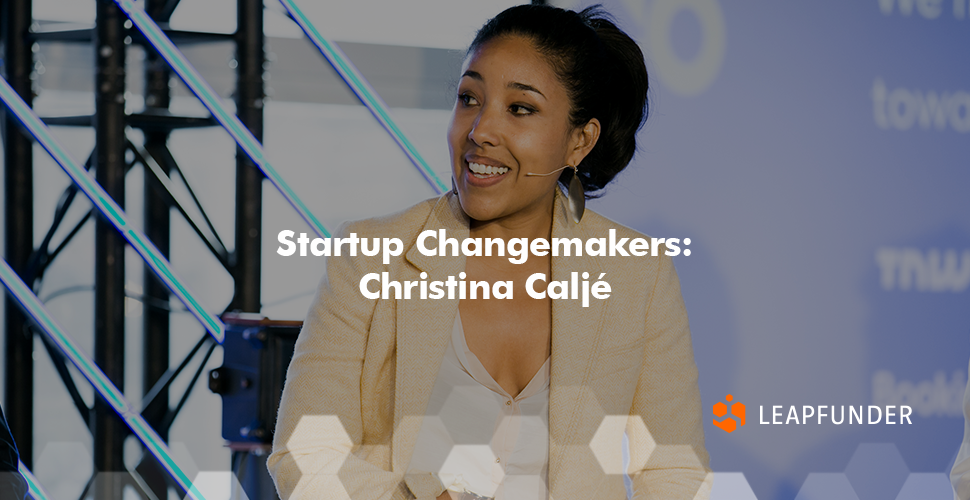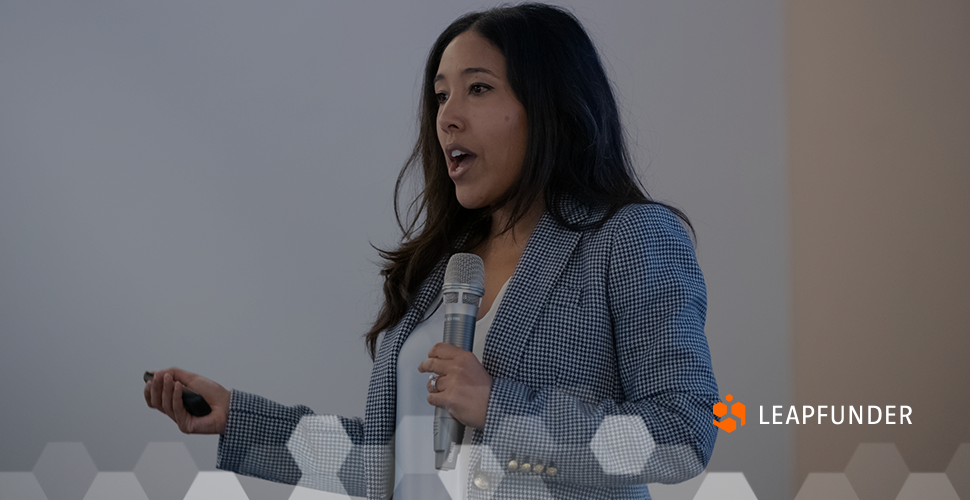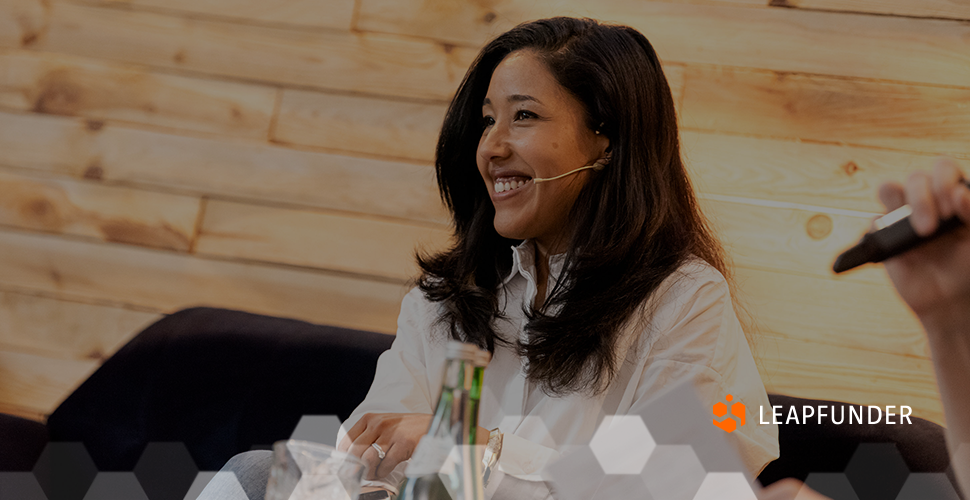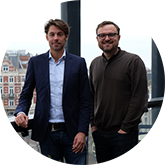Born and raised in New York City, Christina Caljé went from an investment banking environment to becoming a seasoned entrepreneur in the finance and tech sectors, having launched and scaled businesses across Europe and the US. After the acquisition of her video marketing technology company called Autheos in 2021, she expanded her focus to the investment space, to address negative funding dynamics in the European startup ecosystem. She’s now living in Amsterdam, working to progress solutions that address society’s biggest challenges, from social and environmental perspectives. She has directly mentored 40+ startups, invests as a business angel, and currently advises and sits on the board of multiple accelerator programs, venture capital funds, startups, and government entities. Her leadership and impact have been greatly recognized, with awards from InspiringFifty, Techleap, and Women In Tech, amongst others. Find out why she started investing as an angel and how she’s trying to incentivize investors to invest in underrepresented founder profiles.

1. Hi Christina, thank you for agreeing to do the interview. Could you tell us a bit about your background and how you entered the startup world?
I started my career in banking, working at Goldman Sachs in New York and London, during a prosperous time in the finance industry. The money and glamor were great at the start, but then the recession hit, and suddenly the rosy glow slipped away to unmask the underlying dynamics of the industry that I realized didn’t align well with my own personal values. Reputational issues plagued the industry in a confluence of factors that swung the global economy swiftly in the other direction; given my roles at the bank during the period leading up to and throughout the recession 2008 – 2012, I was privy to conversations and decision-making processes at the senior most levels of the 30.000+ firm, with regards to everything from risk management to talent management.
Having been through the highest highs and lowest lows of the period, I began to reflect on whether this was an industry that I wanted to commit to for the next 10-15 years. The answer was no! And, having reached a certain level of seniority at that point, it was somewhat scary to step away from the bank and industry that I grew up in, professionally speaking.
But, that fear was overruled with the excitement that I felt in moving towards the tech sector around the time that smartphone apps were really transforming the way we were communicating, shopping, and vacationing. It was the right moment to make a shift in the industry and see how well my skill set translated from banking into tech. With experience in a wide variety of roles straddling commercial, risk, talent management, and operational strategy, I had a holistic view of how to run a company. So I decided to take a leap, and use those tools to build my own consultancy practice helping US-based web and app development companies to launch/expand business lines in Europe. I did everything from incorporating legal entities, to recruiting talent and doing business development activities. That first taste of entrepreneurship was professionally fulfilling in a new way, immediately seeing the fruits of my labor. Speaking of labor, I was pregnant with my first child at the time! Being an entrepreneur and in control of the projects that I took on made it easier for me to manage my schedule during the pregnancy and with my newborn. Later on, I moved to Amsterdam with my husband and I was still able to serve my clients from there.
While on a trip to California, I attended a Dutch Embassy Pitch Event and met the founder of Peerby. I loved his vision of collaborative consumption and reducing the environmental footprint while simultaneously building community. Fate would have it that he was looking for a COO to professionalize the company, and I was ready to transition away from consulting to focus long-term on growing a company. Peerby was my first move into a venture-backed company!

2. You co-founded Autheos, a marketing technology platform that is applying AI techniques. The company was acquired in 2021. Could you tell us more about that journey?
I was COO for 2 years and Peerby was doing great; we raised about €5 million in funding and grew from 10 to 25 people. Around that time, I was asked to co-found Autheos, and the perspective shift from leader to founder represented (in my mind) a deeper level of commitment that I was eager to take on.
During Autheos’ journey, I experienced high highs and low lows (and high highs again) in growing a business to the point of acquisition, with relatively limited external capital. The pandemic period was a transformational period for society, for my company, and for me as an individual. The Black Lives Matter movement was quite a trigger to reflect on my current and future impact on this world. I wanted to have something beyond the business that I was building at the time. Being a part of the founder community, I realized there are broken dynamics in the Netherlands and broader Europe, especially between founders and Dutch VCs. Those dynamics are amplified for founders of color and female entrepreneurs, and I felt compelled to use my voice to bring more awareness to the conversation. I wanted to have more freedom and capital to affect positive changes in the investor-startup ecosystem in the Netherlands and in Europe.
Autheos ended up in the hands of a larger, better-capitalized company that had a lot of overlap in terms of clients, and I am happy to have that as a success behind us. My advice for other founders looking to exit a company is to think honestly about why they’re exiting. Being clear with yourself about those goals (whether economic, strategic, or personal) will set you up for success in identifying the right partner for the transaction, which is crucial. Talk to other founders that have been through an exit, in order to better understand the process, best practices, and potential deal structures so that you can negotiate the right terms for your company and your shareholders. Like anything, do your research!
3. You’re an Advisor at Curiosity VC, focused on early-stage investments in AI-driven B2B software companies in Benelux, Nordics, and Baltics. Tell us more about your mission there.
The big thing for me when exiting Autheos was to have more influence and impact on the startup ecosystem. Part of that is through my work as a speaker and conversation moderator on topics such as ethical and responsible AI, financial empowerment through technology, and more generally, trends in technology and impact investing. The rest of it is through investing my own capital as an angel, part of that is building connections with investors who align with my philosophy to positively support their portfolio companies toward commercial and social impact.
Curiosity VC is such a fund, co-founded by Herman Kienhuis, whom I’ve known for a long time since he was on the board of Peerby. Through an investment fund he ran for Sanoma at the time, he created the template for a VC investor that I hold in the highest regard. Empathetic, supportive, well-researched, ambitious, and ethically minded. When he launched the fund and asked me to be part of the stellar advisory community supporting the fund as an LP, I could only say yes!
In terms of what I bring to the advisory network, it’s my experience building a computer vision and machine learning-based platform that is commercially viable. Understanding how to build and sell a technical product rooted in AI-based systems, how to monetize that, and how to overcome the challenges that come with building companies frontiering the use of AI to transform stale processes and industries. In terms of what I get from being an advisor, I keep on top of emerging technologies, meet and learn from a new crop of founders, get an inside look into VC fund operations and extend my own portfolio as an investor in Curiosity VCs.
4. What about your motivations to do more angel investing in the past 1,5 years? How do you think you’re influencing the startup ecosystem in Amsterdam?
My overall philosophy is to create a circular approach. You reap benefits from the ecosystem and then you contribute back. I’ve been doing that from a knowledge perspective, as a mentor, over the last six-seven years. Now I’m contributing with capital, helping entrepreneurs to get their ideas off the ground.
On a micro level, there are three areas where I’m trying to contribute from an advisory and capital perspective: investing in female founders; investing in founders of color, and investing in pre-seed stage companies. On a macro level, I’m supporting international impact accelerators like Foundervine and Village Capital through advisory board positions, and working with organizations like Techleap, which have an extensive reach and a very big voice in the Netherlands. I’m also participating in targeted events with the Dutch Ministry of Economic Affairs (EZK) to prioritize diversity on their agenda. For instance, I’d love to find economic ways to incentivize investors to invest in underrepresented founder profiles, such as government-backed matching programs like we see dedicated towards growth and innovation. There is a major economic upside for the Netherlands to capture, by investing in minority-owned businesses that are scalable but currently serving micro-communities. Policy setting is a totally different area than what I’m used to, though, so I am still figuring out how to be most effective in these efforts.

5. What’s going well in the startup ecosystem in the Netherlands at the moment? What’s the ecosystem lacking?
Despite the headlines, there’s a lot more competition for investing in great Dutch founders, with international VC funds seeing a competitive edge in the Netherlands vs. other countries and regions. They are taking the first steps to increase the pace and volume of their investments in the Netherlands, building relationships with founders and angels through community events and scouting arrangements.
That said, I think founders are finding new creative ways to fund their ideas beyond the typical ‘early stage VC fund’. First and second-round checks are more often being filled by operator angels (like Operator Exchange, which I am part of), online angel clubs like Leapfunder, and angel syndicates. In the later stages, there is also more consideration of other types of funding such as debt financing and revenue-based financing. And a general (positive) trend is that founders are getting smarter about how they research investors and how they validate deal term sheets.
So, that’s all positive! On the flip side, the ecosystem is lacking investment in those more binary, longer-term investment opportunities that can be society-changing, such as deep tech and quantum tech. Despite the high number of patents, there are issues when it comes to bringing these ideas through the investment pipeline. Quantum Delta is a €600M government initiative to stimulate this sector and I’m watching this space for further developments!
Thanks a lot for sharing your thoughts, Christina. We wish you the best of luck in your future endeavors.
Join our network of startups & investors!


